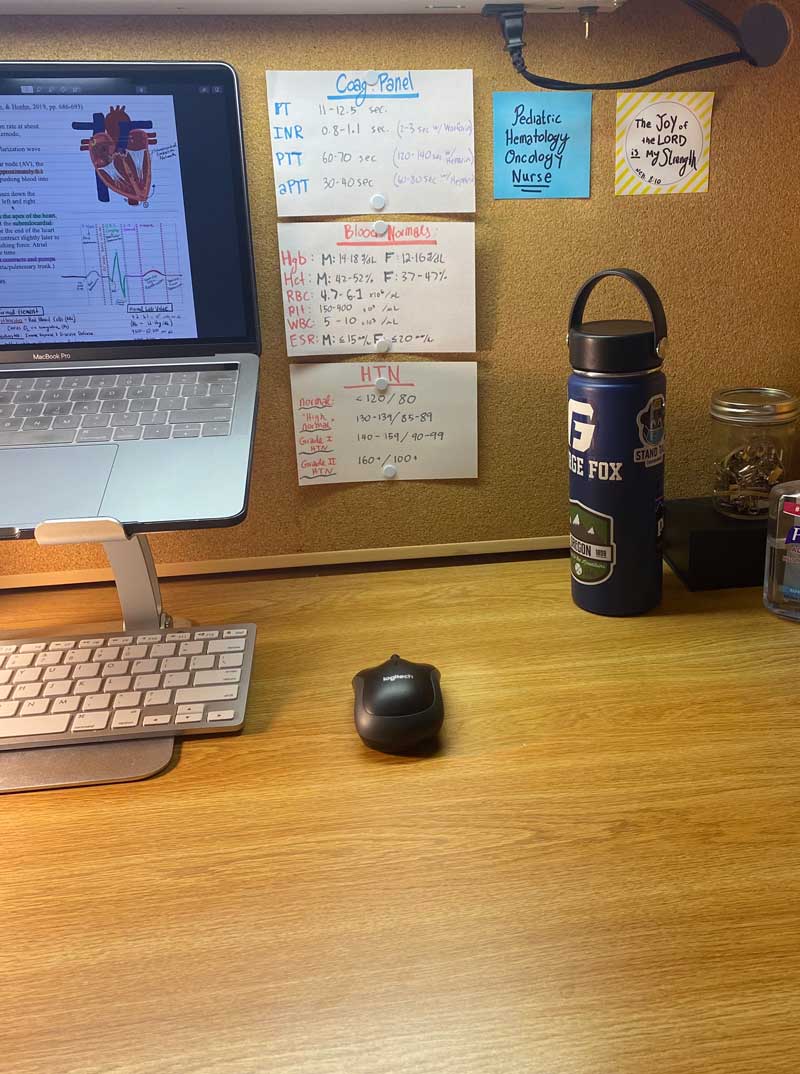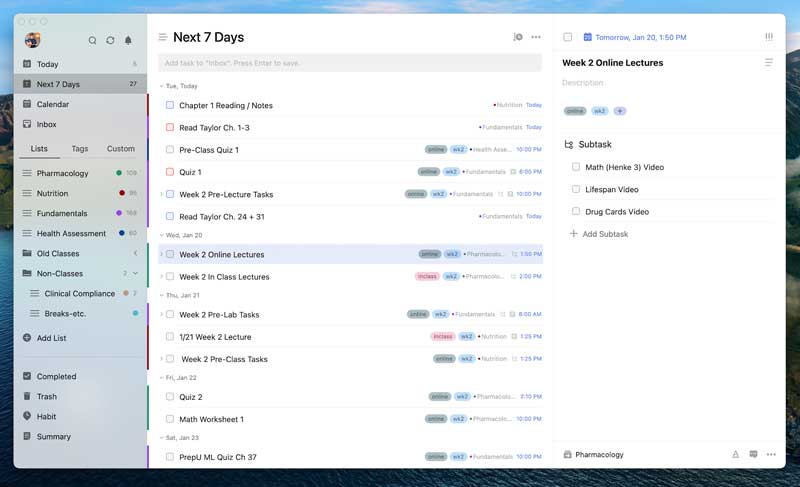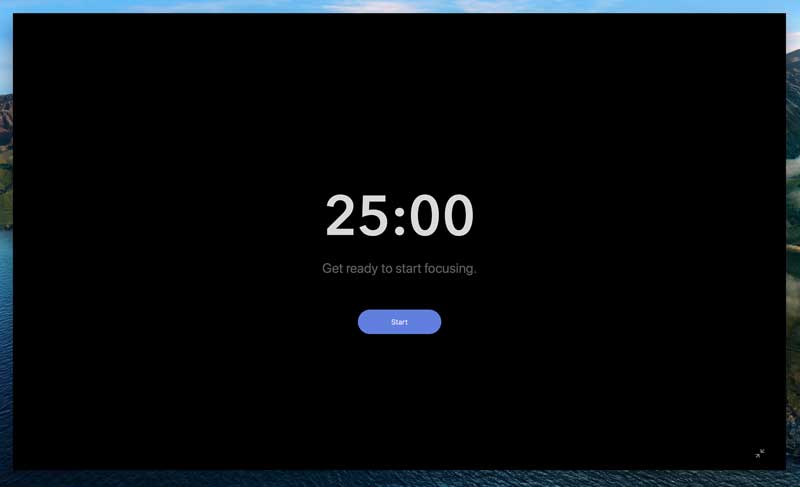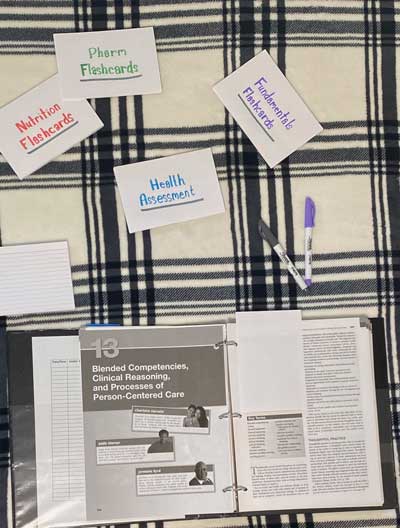
How to Get A's in College
by Caleb Steffen
Let me start by saying that college is worth a lot more than your grade point average. Take a moment to self-assess. What are the top three things you want to get out of college? Why?
If keeping your grades up or even maintaining a 4.0 GPA is one of your priorities, I totally understand you. Are you looking toward getting into grad school? Landing the dream job? Being a perfectionist? I’ve got some tips for you, and they boil down to four key ideas: motivation, organization, communication, and time management.
Motivation
What motivates you? Why are you attending college? Why do you study?
What is your dream?

Don't be afraid to dream big dreams!
Holding on to your dream is one of the most important tips that I can give you.
My dream job is becoming a pediatric hematology-oncology nurse, which serves as one of the most important motivators for my academic success. Find your dream and hold it within view – and I mean that literally. Consolidate what your goal or dream is down to one word or phrase, write it on a sticky note, and stick it somewhere where you will often see it.
I also like to post encouragements or quotes on my wall, often Bible verses or C.S. Lewis quotes, which help to ground me.
These sticky-note reminders are especially useful for me when I am studying for a class that I do not particularly enjoy. As much as I value a well-rounded education at a liberal arts university like George Fox, one of the downsides is that you need to take classes and learn about subjects that are not your favorite. Philosophy, visual art, and literature are my least favorite things to study (I know I’m not the only one). I keep my dream job and end goal in the back of my mind as I attempt to tackle philosophical texts by Kant or as I learn how to analyze Postmodern visual art.
Organization
You need to know what you need to do before you can do well in your classes. The first place to start is with your syllabi. Believe it or not, your professors don’t make syllabi for fun; they really are to help you!

Look in your syllabi for what assignments you need to do, when they are due, and how much weight they carry in the gradebook. For many of my classes, professors spell out exactly what they want for assignments, especially big projects and papers. Syllabi also contain crucial information about how many points each assignment, exam, quiz, or paper is worth. Knowing the relative weight of each task you need to do helps with time management and prioritization. Getting A’s in college is not about doing perfectly on every assignment; it is about getting good scores on important assignments and knowing which assignments to spend less time on.
Once you have looked at all of your syllabi, put every due date for each assignment in your calendar. This might feel like a hassle, but I promise that it is worth your time. I like to use one color for each of my classes to keep everything organized.
It is totally up to you, but I use a paper monthly calendar, my iCal calendar, and an organization app called “TickTick” (which unfortunately is not related to TikTok). Using all three of these systems helps make sure that I won’t forget about an assignment. If that sounds like too much, just stick to one of them.
Once you get organized, you have the foundation to prioritize.
Communication

Communicating with professors and with fellow students is another very important building block for getting A’s in college. First, here is a reminder that your professors’ goal is for you to learn. Even when it feels like they just want to make life difficult, your learning is their priority. If you have a desire to learn, talk about that with your professor during their office hours! Be authentic with your professors; you can actually get to know them (and they can get to know you)!
Are you confused? Are you curious about their specialty? Do you have an assignment that you don’t know how to do? Ask questions! Getting A’s in college has far more to do with asking good questions than knowing everything. Identifying what you don’t know is vital to your academic success.
Communicating with your peers, if not just for social reasons, is also helpful when you’re in pursuit of an A. Having personal connections will encourage you to actually get out of bed and go to class when you are tired in the middle of the semester (which is inevitable). When you have questions about the class, asking your peers feels way easier than going to talk to your professor. If you don’t know someone in the class beforehand, branch out a little bit! Meet someone new! Maybe you’ll even meet the one … I mean you’ve gotta get that ring by spring, right?
Jokes aside, good communication with your classmates can also lead to some great study groups that can help you do better on exams and assignments. Teaching other people course concepts is a fantastic way to study for exams.
Time Management
Time management is the single most important contributing factor to getting A’s in college. Imagine that your time is a currency – one that you constantly spend and can never get back. You get to choose how to spend your time.
Prioritize Assignments
After you are organized with whatever planning system you like best, you can start prioritizing.
What is due soon? What is worth the most points? What has the biggest impact on your grade? How long will it take you to finish? What non-school activities do you need to do? These are super helpful questions to ask yourself. My biggest tip to help with productivity is to plan a specific amount of time you want to spend on any particular assignment or task. Remember, your time is a valuable currency. Write your goal time in your planner or on a sticky note. Using a timer, try to hold yourself to that time goal.

One way that I do this is through a method called the Pomodoro Technique. This technique sets out 25 minutes to concentrate on a specific task followed by a short break. I find that this technique is really effective for me, and I encourage you to try it out.
When making these goals, remember to stick to the SMART goal criteria: Specific, Measurable, Attainable, Realistic, and Time-Oriented. Don’t give yourself too much time for a small task or too little time for a big task. Also, make your goal specific and measurable enough so that you can actually check something off your to-do list. For example, don’t set a goal to “study” for 50 minutes. Instead, pick specific concepts or questions you want to study over that period of time. When you get into the habit of accomplishing your small SMART goals, big SMART goals start feeling way more conquerable.
Studying

Try not to cram before exams, but as I write this … I am cramming for an exam. Intentions can be fantastic, but sometimes follow-through is not. This is an example in my life of choosing which things to let go. Knowing when to let something go and then actually letting it go is one of the hardest things for me to do. Your “no” is just as important as your “yes.”
Use flashcards. Sometimes they seem like a hassle to make, but they are one of the best ways to exercise the retrieval process which you need to use for exams and quizzes. Keep a set of flashcards with you to study throughout the day when you find awkward amounts of free time. When you get stuck in a long line at the Bon for food, you could go scroll through Instagram, but that is also a great time to go through your set of flashcards! Studying across a long period of time for shorter, intense periods is way more helpful for your long term memory than cramming.
Health
TAKE BREAKS. Good health is all about moderation in activity. Don’t spend too much time just on school (even though my friends would laugh at my hypocrisy since I spend a ridiculous amount of time on school). Whether you need to watch an episode of your favorite show, go on a walk, play some ping-pong in the lobby, or talk with some friends, breaks are the key to avoiding burnout. Your mental health, physical health, and spiritual health are all involved in your academic success. Set time aside for self care.
I am a high achiever and I hold myself to (sometimes unreasonably) high standards. This can be super dangerous and I’d caution you to value self-care more than you value your grades. Some of my quick tips: eat well and often, coffee is not a meal, and drink water. Value your social life and spend time with friends and family. The friendships and relationships you make with people at college are far more important than your GPA in the long term.
Sleep
You need sleep to be an effective studier. Now, I don't know what your sleep schedule is like right now, but I am willing to bet that it could be better. Shoot for eight hours every night. Even if it sounds unreasonable, aim high. Sleep improves your memory and cognitive abilities and is extremely important for doing well on exams and quizzes. Under absolutely no circumstances should you plan on pulling an all-nighter before an exam. Believe it or not, you will do better if you get a full night of sleep than if you spend all night trying to cram.
Make your schedule customized for you. Unless you are a morning person who loves to wake up early, never take an 8 a.m. class by choice. I made that mistake my freshman year. I assumed that getting up in the morning would be just like high school. Boy was I wrong.
If you take one thing away from this article, remember this: learning is a process, not a product. Regardless of the grade you take away from a class or your GPA, learning how to learn is the most important skill you can build in college. Life is a process of learning.
You can do it.






